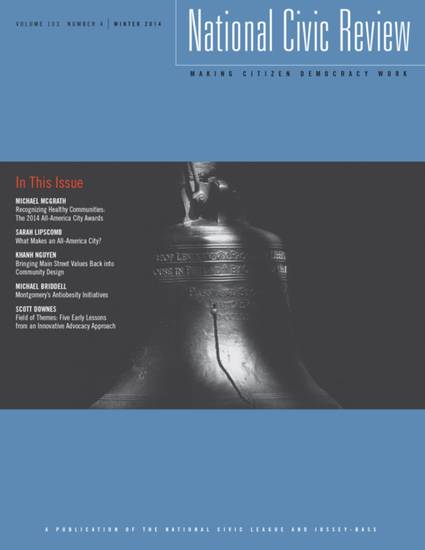
Article
Improving College Access: The St. Louis Graduates Initiative
National Civic Review
(2014)
Abstract
Having a postsecondary education has become a universal maxim. Individuals who have associate and baccalaureate degrees have considerably higher lifetime incomes that those who don't. For metropolitan areas, increasingly engaged in a global competition in an emerging knowledge economy, the correlation between educational attainment and economic prosperity is striking: In 2007, for example, the five US metropolitan areas with the highest baccalaureate completion rates were simultaneously the five with the highest median household incomes. The positives that accrue from educational attainment are more than economic. Research suggests that postsecondary degree holders are healthier, spend more time with their children on educational development, and are more engaged in civic activities.
As of 2007, how was the St. Louis region's educational attainment performance faring? Not so well. The region's baccalaureate completion rate ranked twenty‐fourth among the nation's thirty‐five largest metropolitan areas. Worse yet, there was substantial racial disparity. The rates for whites were more than twice those for African Americans. In fact, St. Louis ranked thirty‐first out of thirty‐five for African American degree completion. Improving these marks became the goal for St. Louis Graduates (STLG), a community initiative begun in 2008.
Disciplines
Publication Date
Winter 2014
Citation Information
E. Terrence Jones. "Improving College Access: The St. Louis Graduates Initiative" National Civic Review Vol. 103 Iss. 4 (2014) p. 60 - 64 Available at: http://works.bepress.com/eterrence-jones/29/
